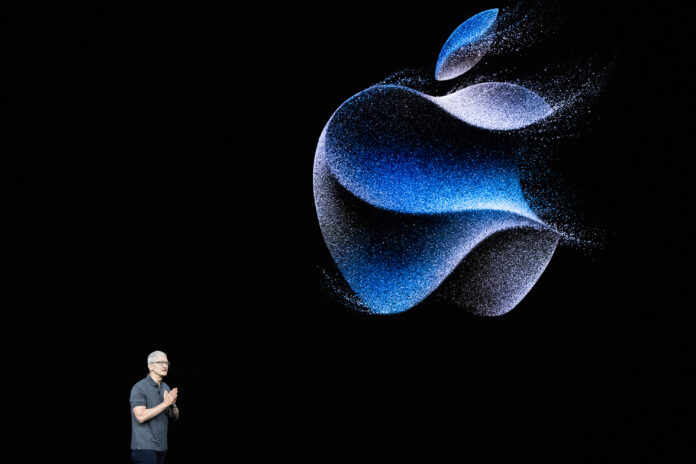Even if you’re a fan of small, limited, or no government at all, and even if you’re suspicious of the Biden administration’s motives in general, as a consumer you should be overjoyed at the news that the Justice Department is suing Apple for a litany of antitrust violations.
The company willfully and ruthlessly brought the lawsuit on itself by running what is effectively an app store monopoly, one led by a CEO whose unilateral power to ban anyone, anytime, for anything rivals any dictatorship in its sheer capriciousness.
The list of Apple’s anti-competitive practices is long. Killing software marketplace competition and forcing 30 percent credit card commissions. Funky rules like “if you mention you can get a better price on the web we will ban your app.” Prohibiting alternative app stores. Blocking interoperability with other platforms. Favoring its own hardware over competitors’. Creating its own pre-loaded apps that compete with private developers who spent years working on their products.
And it’s not just the way Apple deals with other businesses—it’s the way it deals with consumers too. It can brick your phone, delete any app at any time, track you and your habits, and censor what you install. You have no say in the matter. Do you really even own your phone? Or did you just pay Apple $1,000 for the privilege of being allowed to use it?
It was all anticompetitive all along, and yet Apple has gotten away with it because many weren’t savvy enough to understand what the Silicon Valley giant was up to—and the company lobbied heavily to keep it that way.
This is a fight that’s going to last for years. It’s going to be ugly, but in the end the government absolutely has to ensure that if it wins, Apple can’t engage in malicious compliance to satisfy a court’s order.
What do I mean by “malicious compliance?” Well, look what happened when a judge ordered the company to accept alternative payment methods in its app store. After the Supreme Court wouldn’t take the case, Apple said, “ok fine, but you have to get our permission to take alternative payments, and you have to keep offering our payment system too, and you have to pay a 27 percent commission on sales.”
Nic Coury / AFP/Getty Images
That’s not “open up your platform,” that’s “we have lots of lawyers.”
It’s not just in the U.S. either—just look at what the company did in the EU when it was forced to comply with “digital gatekeeper” rules. Apple “opened” its platform to alternative app stores and payment methods, but only if large developers complied with a new fee.
I, of course, have some skin in the anti-Apple game. In 2021 I was CEO of a company that had the fastest-growing app in Apple’s store. And then, just like that, we were gone. Deplatformed, off the iPhone, not accessible, after being given an arbitrary demand and 24 hours to comply.
Imagine having 15 million users disappear with the click of a button on one day’s notice because public media perception changes.
And while I understand that the circumstances around our app—Parler—were highly unique, and I’m not excusing anyone’s misbehavior by any means, the fact remains that Apple wields almost unprecedented power to destroy companies at any time, for any reason, with little to no warning.
This is one case where, even as a fan of limited government and free enterprise, I absolutely hope the Justice Department prosecutes vigorously. Apple needs to be held accountable. The iPhone needs alternative app stores, sideloading (like Android), multiple payment options, interface parity for third-party hardware, and frankly any other change the government can think of to bust up the monopoly.
No one company should have that much power over other private enterprises. To the extent we even have antitrust laws, this is why they exist.
John Matze is the CEO of the social media platform Hedgehog.
The views expressed in this article are the writer’s own.
Uncommon Knowledge
Newsweek is committed to challenging conventional wisdom and finding connections in the search for common ground.
Newsweek is committed to challenging conventional wisdom and finding connections in the search for common ground.


